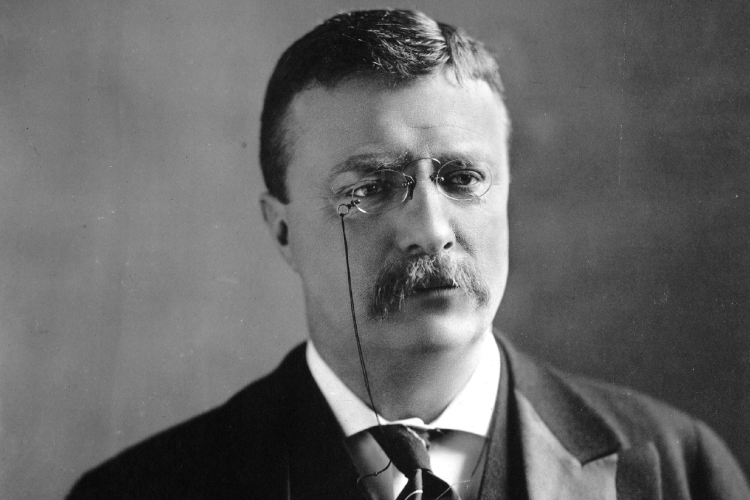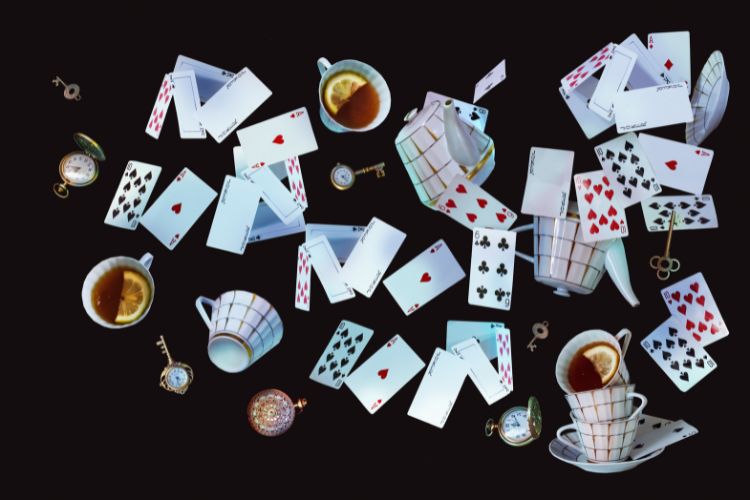Riddles are among the oldest forms of entertainment. They’ve been around for thousands of years, since the birth of language itself. Riddling is also a universal art—from Europe and the Americas to Asia, Africa, and Australia, this mind-bending pastime is enjoyed all over the world.
You can find riddles almost everywhere, from ancient texts and the Bible to Shakespeare and Harry Potter. Because they’re memorable and fun to solve, riddles are still popular to this day.
So, if you want to explore the long history of these short works of art, you’re in for a treat. We’ve also collected well-known historical riddles from around the globe to give your brain a tease!
Meaning and Origins of The Riddle
A riddle is a mystifying, misleading, or puzzling question that’s posed as a problem to be solved or guessed as part of a game, according to Webster’s Dictionary. It can come in the form of a phrase, statement, or question, and requires ingenuity and careful thinking to get the answer.

The word “riddle,” shares its origin with “read,” from the Old English word rǣdels. This term came from the Germanic verb, rēdaną, which means to interpret or to guess.
The earliest known riddles are from 4,000 years ago! They were written and preserved on clay tablets by an ancient civilization, the Sumerians. This is also the civilization with the oldest surviving system of writing that we know of, cuneiform, dating back to around 3500 B.C.
Aside from the Sumerians, the Ancient Babylonians, Ancient Greeks, and Ancient Egyptians are also some of the oldest riddle-solvers. They’ve been creating and sharing riddles even before recorded history, and passing them down orally from one generation to the next.
The World’s Oldest Riddles
Are you curious about the centuries-old riddles and mind-bending challenges that Sumerians have been scratching their heads about since ancient times? Have fun answering a few of them!
Riddle: Who becomes pregnant without conceiving, who becomes fat without eating?
A raincloud
Riddle: There is a house. One enters it blind, leaves it seeing. What is it?
A school
Riddle: An open house, a locked up house, he sees it, but even then it remains closed.
A deaf person
Here’s a particularly funny Sumerian riddle, written on a cuneiform tablet traced back to 1900 B.C., which is also considered the world’s oldest joke!
Riddle: Something which has never occurred since time immemorial.
A young woman did not fart in her husband’s lap
History of Riddles in Various Countries and Cultures
In addition to the cuneiform tablets in ancient Sumer, the world’s oldest surviving poetic riddles can be found in Asia, in the Sanskrit Rigveda of ancient India. Scholars have also collected riddles from the early Arabic-speaking world, as well as in Persian and Hebrew texts.
Riddles were incredibly popular in ancient Greece as they were supposed to “prove the intelligence of a man.” Many can be found in the writings of famous poets, like Homer, and riddle tournaments were a common occurrence, with feasts held in honor of the champions.
Meanwhile, in Africa, riddles were previously used as a rite of passage for young people. Anthropological research has discovered vast collections of riddles from old Africa, and they’ve been described as “one of the most important forms of oral art” from the continent.
Medieval records of riddles have been retrieved from Germany, England, and other parts of Europe, where street entertainers made a living asking riddles to travelers. Riddles were also a prominent part of ancient Chinese literature and are present in Native American texts as well.
Across nations and generations, riddles have been a significant part of human culture—as a form of entertainment, a tool for education, and a shared experience that brings people together.
Most Famous Riddles in History
History is riddled with riddles! By engaging in them, we not only exercise our mental muscles but also take part in a rich historical tradition that unites all nations and generations.
So, put your thinking caps on, ’cause we’re about to travel the world of riddles. Here are some of the most well-known historical riddles that have puzzled people from around the globe:
1. The Riddle of the Sphinx (Ancient Greece)
What goes on four legs in the morning, on two legs at noon, and on three legs in the evening?
A human
2. The Riddle of St Ives (18th-Century England)
As I was going to St Ives,
I met a man with seven wives,
Each wife had seven sacks,
Each sack had seven cats,
Each cat had seven kits:
Kits, cats, sacks, and wives,
How many were there going to St Ives?
One
3. The Royal Riddle (Scandinavian Norse Mythology)
Four hang, four sprang, two point the way, two to ward off dogs, one dangles after, always rather dirty. What am I?
A cow
4. Samson’s Riddle (The Book of Judges in the Bible)
Out of the eater, something to eat; out of the strong, something sweet.
Bees making a honeycomb inside the carcass of a lion
5. William Shakespeare’s Riddle (The Merchant of Venice)
On the gold casket: “Who chooseth me shall gain what many men desire.”
On the silver casket: “Who chooseth me shall get as much as he deserves.”
On the lead casket: “Who chooseth me must give and hazard all he hath.”

The lead casket contains Portia’s picture
6. Jane Austen’s Riddle (Emma)
My first displays the wealth and pomp of kings,
Lords of the earth! Their luxury and ease.
Another view of man, my second brings,
Behold him there, the monarch of the seas!
Courtship
7. Theodore Roosevelt’s Favorite Riddle (United States)
I talk, but I do not speak my mind.
I hear words, but I do not listen to thoughts.
When I wake, all see me.
When I sleep, all hear me.
Many heads are on my shoulders.
Many heads are at my feet.
The strongest steel cannot break my visage.
But, the softest whisper can destroy me.
The quietest whimper can be heard.

An actor
8. Tolkien’s Riddle (The Hobbit)
Thirty white horses on a red hill. First they champ, then they stamp, then they stand still. What are they?
Teeth
9. The Riddle from Harry Potter (The Goblet of Fire)
First think of the person who lives in disguise,
Who deals in secrets and tells naught but lies.
Next, tell me what’s always the last thing to mend,
The middle of middle and end of the end?
And finally give me the sound often heard
During the search for a hard-to-find word.
Now string them together, and answer me this,
Which creature would you be unwilling to kiss?
A spider
10. The Mad Hatter’s Riddle (Alice’s Adventures in Wonderland)
Why is a raven like a writing desk?

Because it can produce a few notes, though they are very flat; and it is never put with the wrong end in front.
Take Part in Riddle History Today
To riddle is to describe one thing, in terms of another. With more and more riddles being shared and created each day, it seems like this 4,000-year-old ancient art form is here to stay! The history of riddles has become a present pastime.
Whether they’re short or long, simple or complex, silly or serious, all riddles have one thing in common: they challenge everyone to think out of the box. So why not solve a riddle today?
For your daily dose of mind-boggling riddles and the best brain teasers, keep coming back to Tease Your Brain, a place where curious minds come together to sharpen their wits.
